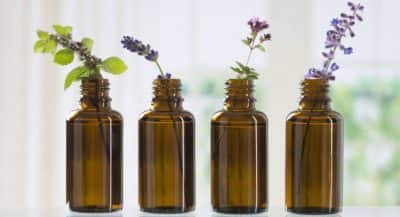Essential oil helps reduce muscle soreness after exercise
Landlord:17600603718 time:12-13 13:56 Click:1172 Reply:0 Collection
You don't need to keep the essential oils limited to your bath. A good calm stretch can help release all the tension from your body. However, if you work hard in the gym, you can use some essential oils to recover quickly. These scent drops that promote mood function can also help soothe muscle soreness after exercise, thus helping to recover after exercise. So inhale, pat and enjoy these oils after exercise.
Peppermint oil: Fresh peppermint oil has excellent healing properties [1]. Just add a drop of peppermint oil to the water and cool it in the hard gym to rub some partial relief on the muscles. Here are 5 expert tips for using essential oils for beginners.
Eucalyptus oil: Eucalyptus oil can also relieve pain and pain, so it can be a good post-exercise [2]. Just add a little eucalyptus oil to a cool, wet towel and put it on those painful muscles. You can also put a wet towel on your face to reduce redness.
Lemongrass: This fragrant oil relieves muscle pain [3]. Simply rub the oil directly onto the muscles to get some relief. In addition, follow these 4 tips to relax your muscles after exercise.
Lavender Oil: The aroma of lavender is related to its cool, calming and soothing qualities. It has good anti-inflammatory properties against muscle soreness and relieve joint pain. Just rub some lavender oil directly onto your muscles [4].
references:
[1] Meamarbashi, A., & Rajabi, A. (2013). The effect of mint on athletic performance. Journal of the International Sports Nutrition Society, 10, 15. Http://doi.org/10.1186/1550-2783-10-15
[2] Lakhan, SE, Sheafer, H., & Tepper, D. (2016). Aromatherapy reduces the effectiveness of pain: systematic reviews and meta-analyses. Pain Research and Treatment, 2016, 8158693. http://doi.org/10.1155/2016/8158693
Koulivand, PH, Khaleghi Ghadiri, M., & Gorji, A. (2013). Lavender and nervous system. Evidence-based supplemental and alternative medicine: eCAM, 2013, 681304. http://doi.org/10.1155/2013/681304
[3] Nikjou, R., Kazemzadeh, R., Rostamnegad, M., Moshfegi, S., Karimollahi, M., and Salehi, H. (2016). Effect of Lavender Aromatherapy on the severity of primary dysmenorrhea: a three-blind randomized clinical trial. Yearbook of Medical and Health Sciences, 6(4), 211-215. Http://doi.org/10.4103/amhsr.amhsr_527_14
Image source: Shutterstock picture
